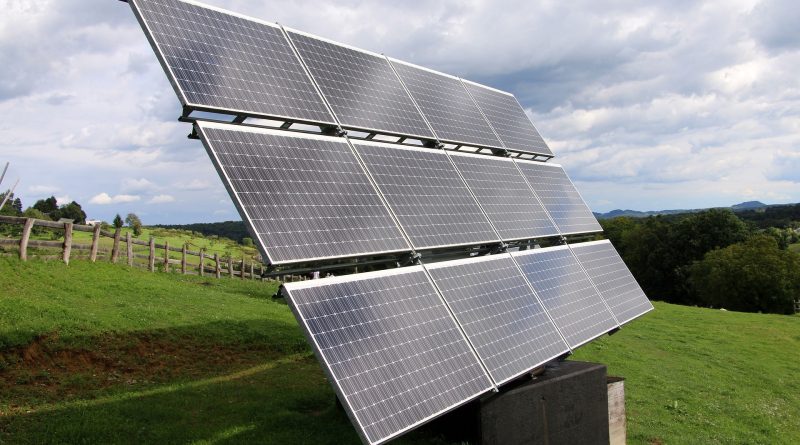Unlocking On-Grid Solar System Benefits
Solar energy has gained significant attention in recent years as a reliable and sustainable alternative to traditional forms of power generation. As our collective awareness of environmental issues deepens, more and more people are looking to harness the power of the sun to meet their energy needs. One of the most common ways to do this is through an on-grid solar system.
Table of Contents
What is an On-Grid Solar System?
An on-grid solar system, also known as a grid-tied or grid-connected system, is a solar power system that is directly connected to the main electricity grid. Unlike off-grid solar systems that rely solely on solar panels and battery storage, on-grid systems are able to generate electricity and feed any surplus power back into the grid.
Components of an On-Grid Solar System
To understand how an on-grid solar system works, it is essential to become familiar with its key components:
1. Solar Panels: These are the heart of the system. Solar panels, typically made of photovoltaic cells, convert sunlight into direct current (DC) electricity.
2. Inverter: The inverter plays a crucial role in an on-grid system. It converts DC electricity produced by the solar panels into alternating current (AC) electricity, which is used to power household appliances and can be fed back into the grid.
3. Mounting System: Solar panels need to be properly mounted to maximize sun exposure. Depending on the type of installation, mounting systems can vary from rooftop to ground-mounted setups.
4. Electrical Meter: An electrical meter keeps track of the electricity generated by the solar system and the excess power that is fed back into the grid. This helps monitor the system’s performance and facilitates the process of receiving credits or compensation for the surplus electricity produced.
5. Connection to the Grid: The on-grid solar system is connected to the main electricity grid through an interface, such as a bi-directional meter or export/import controller. This allows for a seamless flow of electricity between the grid and the solar system.
Advantages of On-Grid Solar Systems
1. Cost-Effective: An on-grid solar system eliminates the need for purchasing and maintaining costly battery storage. This significantly reduces the overall installation cost.
2. Grid Backup: In an on-grid system, when the solar panels are not generating enough electricity, you can still draw power from the main grid. This ensures a continuous power supply even during low sunlight periods or increased energy demand.
3. Net Metering: One of the most appealing aspects of an on-grid solar system is net metering. This allows homeowners to export excess electricity to the grid and receive credits or compensation for it. These credits can then be utilized during times when the solar system isn’t producing enough electricity, such as at night or during cloudy weather.
4. Environmental Benefits: By utilizing solar energy, on-grid systems reduce the reliance on fossil fuels, thereby minimizing carbon emissions and contributing to a cleaner and greener environment.
Considerations for On-Grid Solar Systems
Before deciding to invest in an on-grid solar system, there are a few considerations to keep in mind:
1. Grid Reliability: On-grid systems are dependent on a stable and reliable grid. If power outages are frequent in your area, it may be worth considering a backup power solution, such as a battery storage system.
2. Grid Connection Costs: Connecting your solar system to the grid might involve certain installation or connection costs. It is important to factor in these expenses when estimating the overall cost of the system.
3. Regulatory Approvals: Depending on your location, there may be specific regulations, permits, or approvals required to install an on-grid solar system. It is essential to familiarize yourself with these requirements to ensure compliance.
Conclusion
Unlock the power of the sun with SolarClue®’s on-grid solar systems – a practical and cost-effective solution for meeting your energy needs. By generating electricity while being seamlessly connected to the main grid, these systems bring numerous advantages, including reduced costs, access to grid backup, net metering incentives, and environmental benefits. Before investing, it’s crucial to consider factors such as grid reliability, connection costs, and regulatory requirements. With the increasing affordability and availability of solar technology, SolarClue®’s on-grid solar systems stand as a promising solution for a sustainable energy future. Connect with us and embark on the journey towards clean and affordable solar energy.
Frequently Asked Questions
On-grid solar systems offer reduced electricity bills, potential income through excess energy sales, environmental sustainability, and grid reliability.
By generating solar power, users can offset their electricity consumption, leading to lower bills. Excess energy can be sold back to the grid.
Yes, through programs like net metering, users may receive compensation or credits for surplus electricity fed back into the grid.
On-grid systems contribute to environmental sustainability by reducing reliance on fossil fuels, lowering greenhouse gas emissions, and promoting clean, renewable energy.
Yes, by harnessing solar power, on-grid systems contribute to a reduction in carbon footprints, helping combat climate change.
On-grid systems empower users to generate their electricity, reducing dependence on traditional energy sources and volatile energy markets.
Yes, distributed on-grid systems can contribute to grid stability by reducing peak demand and enhancing overall system reliability.
Net metering allows users to receive credits for excess electricity, maximizing the economic benefits of on-grid solar by offsetting costs.
Yes, many regions offer financial incentives such as tax credits, rebates, and net metering programs to encourage the adoption of on-grid solar systems.
Yes, on-grid solar systems are considered a long-term investment with a potential return on investment, energy savings, and environmental benefits over their lifespan.




